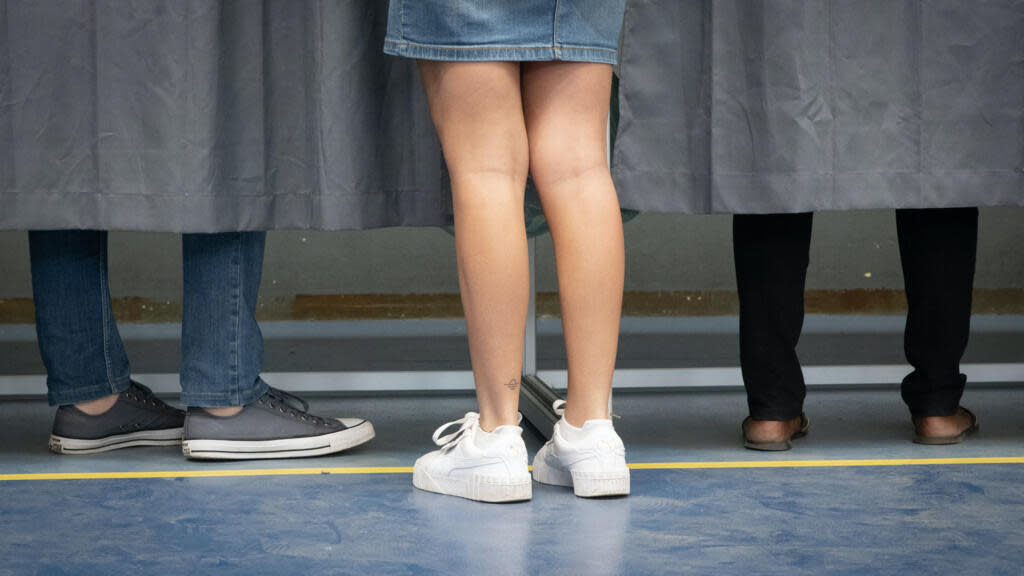The three-way factor that makes France's election results so unusual

The second round of French parliamentary elections are typically a two-horse race, but unusual circumstances mean that a record number of candidates are still in the running after Sunday's first-round vote. With the far right in the lead, whether or not third-place candidates choose to drop out will be a deciding factor when France votes again this weekend.
It's normally straightforward: multiple candidates stand in the first round of French legislative elections, then the top two go through to a deciding round the week after.
But little about these elections is normal.
They are taking place three years ahead of schedule and were organised in less than three weeks, after President Emmanuel Macron took the shock decision to dissolve parliament when his party took a drubbing in EU elections last month.
The lightning lead-up, shifting political alliances and high turnout have all combined to shake up the usual patterns.
After Sunday's first round of voting, as many as 306 of the 577 seats in France's National Assembly could be decided in three-way races.
In the last parliamentary elections two years ago, it was just eight.
Turnout crucial
While it's always been possible for more than two candidates to qualify for the second round, falling voter turnout has made that outcome less and less likely.
On Sunday, turnout reached almost 67 percent – its highest since 1997.
Read more on RFI English
Read also:
What happens now that far right leads in France's parliamentary elections?
Horse-trading begins after France's far right wins first round of snap elections
Macron urges democratic alliance against far right after National Rally's election success


